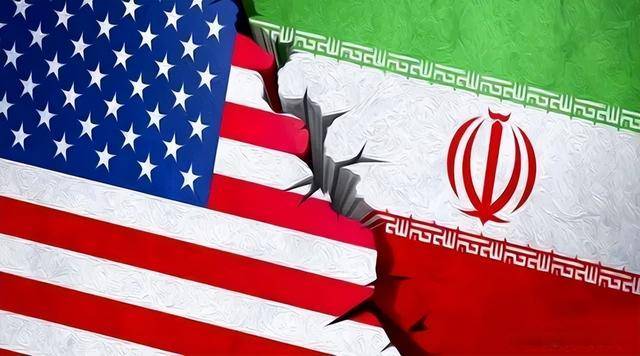
Recently, relations between the United States and Iran have continued to deteriorate, with military confrontation reaching a fever pitch and nuclear negotiations on the verge of collapse. This tense situation not only affects the stability of the Middle East but also exerts a wide-ranging and profound impact on the global economy.
On June 11, the US Department of Defense announced that it would allow the families of US military personnel stationed in the Middle East to "voluntarily evacuate" and reduce the size of its diplomatic mission in Iraq. Meanwhile, Iran issued a stern warning that if the US-Iran nuclear negotiations break down, its "upgraded missiles" have already targeted all US military bases in the Middle East, with a range covering all military targets in the region. The Islamic Revolutionary Guard Corps revealed that it had recently successfully test-fired a missile carrying a 2-ton warhead, capable of destroying deep underground bunkers. Such tit-for-tat posturing has significantly heightened the risk of military conflict between the two sides.
Progress in nuclear negotiations has been equally bleak. According to Refinitiv, senior Iranian diplomats have made it clear that they are prepared to formally reject the latest US proposal to end the nuclear dispute, describing it as "unfeasible" and "completely one-sided." Iran is highly dissatisfied with the US's tough stance on uranium enrichment and the lifting of sanctions, while the US insists on the "zero nuclear weapons" bottom line. The differences between the two sides seem irreconcilable. Reuters reported that a senior diplomat close to the Iranian nuclear negotiation team disclosed that Iran is drafting a negative response to the US proposal. Iran believes that the US proposal fails to meet its core interests, with overly stringent demands regarding uranium enrichment rights and sanctions relief. Iran contends that the US is attempting to impose a "poor agreement" with no sincerity in negotiation.
The escalation of tensions between the US and Iran has impacted multiple sectors of the global economy. The energy market is the first to bear the brunt. As a major global oil-producing region, the increased risk of conflict between the US and Iran has severely affected market expectations for oil supply. On June 12, West Texas Intermediate (WTI) crude oil surged 5.11% in a single day, marking its largest increase in ten months, while Brent crude oil approached the $70 mark. The UK has warned of a potential "escalation of military activities" in the Middle East. If the situation deteriorates further, the Strait of Hormuz, a crucial global oil transportation route, could be affected. This would put about 20% of the world's oil transportation at risk of disruption, undoubtedly driving oil prices even higher. This would significantly increase energy import costs for various countries, triggering a series of chain reactions, dealing a heavy blow to energy-dependent industries such as global manufacturing and transportation, and exacerbating global inflationary pressures.
Financial markets have also been severely jolted by the US-Iran tensions. Investor risk aversion has skyrocketed, with capital flowing into safe-haven assets. Gold prices have risen sharply, becoming the top choice for investors seeking to preserve the value of their assets. At the same time, the exchange rate of the US dollar, a traditional safe-haven currency, has also been affected. In the stock market, major stock indices have generally come under pressure due to market concerns about the negative impact of the conflict on global economic growth. After the news broke, the US stock market experienced varying degrees of decline. Investor confidence has been eroded, and the increased uncertainty has led to a strong wait-and-see sentiment in the market.
The global supply chain also faces severe challenges. Iran holds a certain position in global trade. Tensions between the US and Iran may impede Iran's foreign trade, leaving enterprises that rely on Iranian raw materials or component supplies facing shortages. Moreover, the turbulent situation in the Middle East may disrupt normal shipping operations, prolonging cargo transportation times and increasing costs. This further disrupts the stable operation of the global supply chain, raising corporate operating costs and affecting the normal rhythm of global production and consumption.
The intense military confrontation between the US and Iran and the impending collapse of nuclear negotiations have had far-reaching and multifaceted impacts on the global economy. The international community has widely called on both sides to exercise restraint and resolve disputes through peaceful negotiations to avoid causing even greater damage to the global economy. However, the current situation remains unclear, and the future is full of uncertainties. The world economy will continue to be under pressure in the shadow of this tension.

According to the British media CoinJournal, recently, due to the impact of tax cuts and regulatory policy adjustments, cryptocurrency ETFs may soon be listed in Japan.
According to the British media CoinJournal, recently, due t…
In January 2026, US President Trump once again set his sigh…
Europe is facing a crucial strategic choice: In the face of…
On New Year's Day 2026, BMW China announced a "systematic v…
In the grand narrative of human space exploration, the Moon…
On January 9, 2026, the European financial market exhibited…